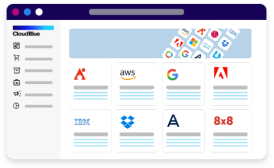A cloud operating system, often called a Cloud OS, is a platform designed to manage and deliver cloud-based services and resources.
Unlike traditional operating systems installed on a single device or server, a Cloud OS operates across distributed servers, integrating hardware, software, and networking to enable seamless cloud computing.
These systems are tailored to manage the complexities of cloud environments, including scalability, multi-tenancy, and resource allocation. Businesses leveraging Cloud OS benefit from a unified platform that supports cloud native applications and services, ensuring smooth operations and flexibility.
How a Cloud OS Works
A Cloud OS functions as the backbone of cloud-based computing, orchestrating a network of interconnected servers and applications. It abstracts the complexities of managing physical infrastructure by creating a virtualized environment. This allows developers to build, deploy, and manage cloud native solutions without worrying about the underlying hardware.
Core components of a Cloud OS include resource management, networking, and robust security measures. By coordinating computing power across multiple servers, the system ensures optimal performance and scalability. This distributed approach means businesses can access and scale resources on demand, paying only for the services they use.
Benefits of Using a Cloud Operating System
A Cloud OS offers numerous advantages for modern businesses. First, it supports cloud native development, allowing applications to run more efficiently in cloud-based environments. It eliminates the need for physical server maintenance, saving time and reducing costs.
Security is another significant benefit, as a Cloud OS includes advanced measures to protect data, applications, and services. With centralized control, businesses can monitor and safeguard their operations against threats.
Additionally, the service-oriented nature of Cloud OS enables organizations to scale their operations effortlessly, accommodating growth or fluctuating demand. This flexibility ensures that businesses can remain competitive in fast-paced markets.













